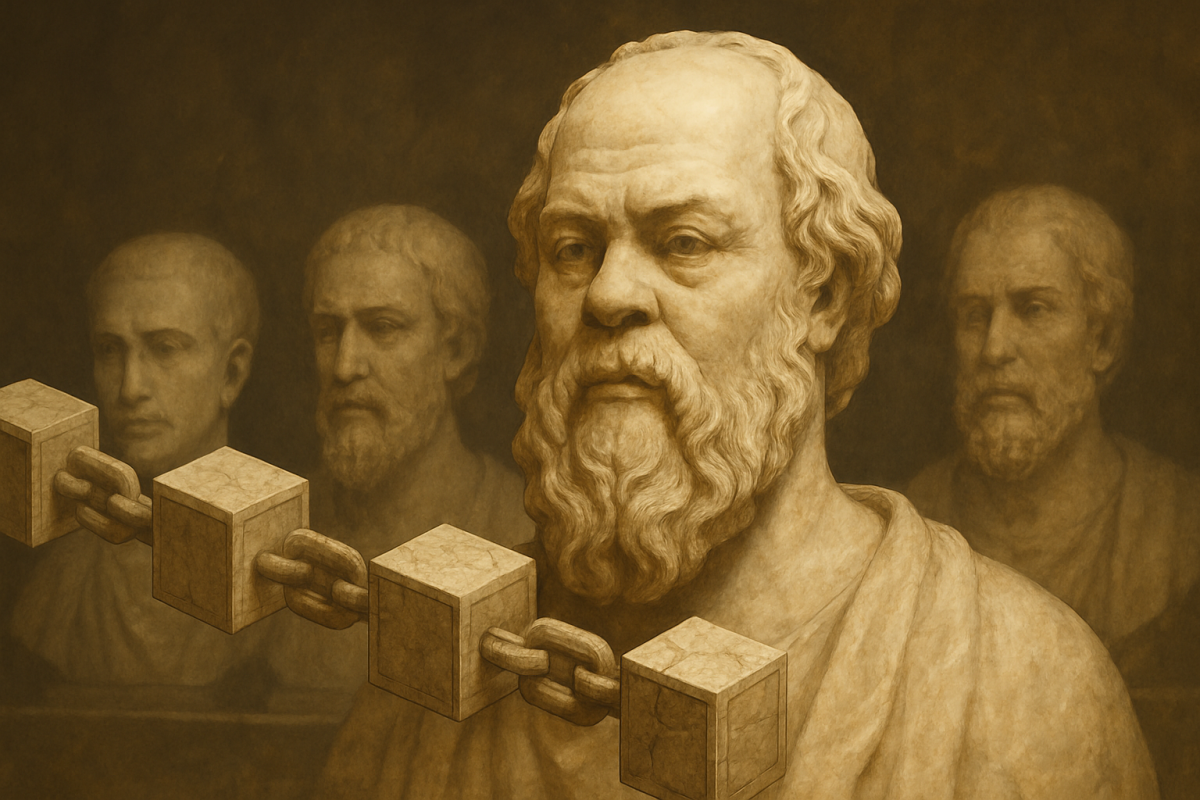Why We Need Socrates in Our Web—and 3 Things His Friends Would Say
Web3 is many things: fast, creative, chaotic, sometimes profound, occasionally unhinged. It’s the future of our web. Its values of freedom and libertarianism are promising, but we need the annoying, relentless, sandals-wearing guy who refused to shut up until people asked better questions. Here’s what Socrates and his friends can do for our dear web.
I think Web3 needs to look backward, not just to the future. It’s optimizing systems that might not even be pointed at a world we’d want to live in. Sometimes it feels like a future without philosophy? A well-funded digital confusion.
In my work within health and wellness, I create courses within personal development and try to learn from the brightest minds of history. I know, Socrates wouldn’t audit the code of the web—he’d audit its intent. He’d show up in governance forums and ask if the definition of “community” includes anyone who can’t afford to buy in. He was all about being human-centric.
He’d be the one raising his hand to ask, “What do we mean by ‘freedom,’ exactly?” I feel that most people would find him annoying, but this is the kind of questioning we need to know where we are going, what we are building, and how we relate to the values of Web3.
Because if we don’t ask these questions, here’s what we risk building:
• a metaverse full of real estate speculation and zero community.
• a DAO that votes to evict tenants and calls it “alignment.”
• a social token protocol that turns human connection into yield.
Perhaps that future would be technically flawless. But it would also be ethically void. I’ve said it before: code cannot be law, because it would have forgotten how to listen.
Just because it’s decentralized doesn’t mean it’s good. No, not everything needs a token.
”We want the roadmap of Web3 projects to look like a philosophy of life that we actually want to live in.”
Kierkegaard said, “Life can only be understood backwards, but must be lived forwards.” Web3 lives very forward. It launches first, governs later, audits if we’re lucky. Remember, philosophy can be highly practical. In Web3, it can be a way to add hindsight before the crash.
Shannon put it more bluntly: “We may have knowledge of the past but cannot control it; we may control the future but have no knowledge of it.” So it’s obviously smart to build with both.
Every protocol needs a philosopher-in-charge. Nope, not a mascot. But a real existential auditor. Someone to ask: Who benefits? Who decides? Is this freedom, or just a new kind of control?
Just as we need our closest friends to raise their concerns when we do wrong or have lost our track in life, we need Socrates’ friends to ask necessary questions when we build our digital life:
“Just because it’s permissionless doesn’t mean it’s harmless.”
“Immutability is just stubbornness if you can’t admit when you’re wrong.”
“A protocol with no pause for reflection will automate a future no one meant to build.”
Yes, it’s about looking around before falling completely into the hands of hyper-fast innovation. Every societal development needs to occasionally consider re-orientation to remain aligned with its soul.

